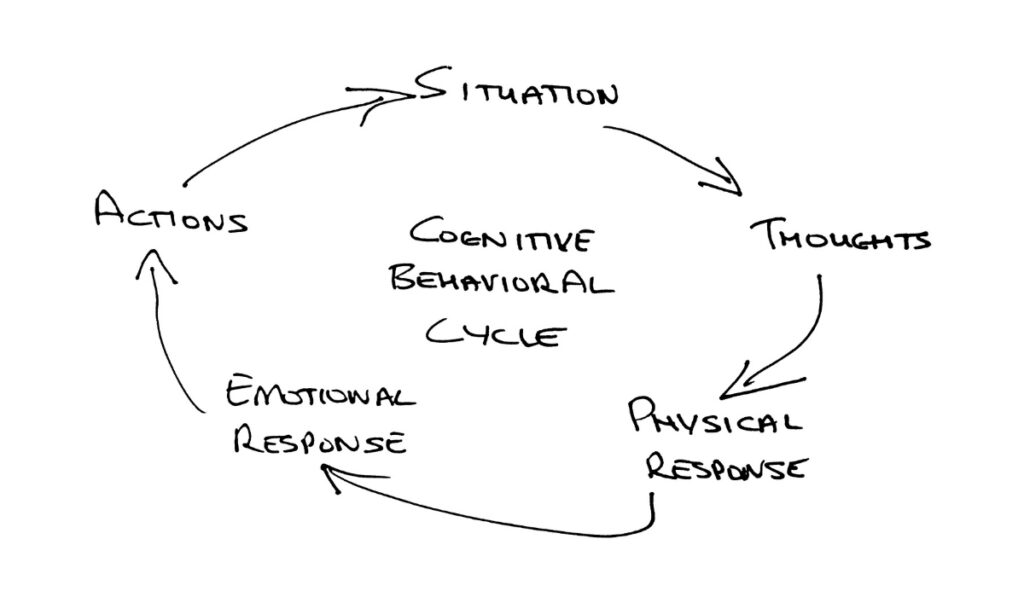Recurrent depression and anxiety are one of the common symptoms found in every fifth person. With the increased level of stress and fast-moving life, it sometimes becomes impossible to catch up. These are the times when we are at the lowest point and are vulnerable to self-criticism.
While many people find it easy to hop back to their daily routine, many get stuck in the spiral of negative thoughts, unhealthy behaviour, and health issues. In such situations, finding a way to look at life differently can help them overcome the barrier of negativity and live a positive life.
Mindfulness-based cognitive therapy (MBCT) involves practising mindfulness and cognitive behaviour to face our thoughts and get over them. With many people shifting to guided meditation-based treatments, MBCT can be the treatment you are looking for. Keep reading to learn more about the benefits and the process of MBCT.
What is cognitive therapy?
Cognitive therapy can be explained as short-term psychotherapy that focuses on the way we think, our behaviour, and how we communicate. Unlike other forms of psychotherapy, it is not oriented towards experience. Instead, it is mainly focussed on the present issues and uses problem-solving orientation.
Cognitive therapy has been used for a range of health issues and problems such as anxiety, depression, sleeping problems, and eating disorders. This involves exploring the emotions of an individual and recognizing the reasons for negative thoughts and behaviour. Once the causes and patterns of negative reviews are identified, Cognitive therapy can train the mind to look for the positive side of the situation.
Cognitive therapy includes self-talk, Journaling, and positive activities that help the individual cope with their thoughts and behaviour.

What is mindfulness?
Mindfulness translates into being utterly aware of our surroundings and ourselves. It is an innate ability of human beings to know what they are doing, and their presence of mind is fully active.
Meditation helps an individual be present in the current moment and forget the worries of the past and the anxieties for the future. It enables the body to alleviate worldly problems by focusing only on the present moment and becoming free. Meditation has been used in many therapies because of the benefits it offers, such as reducing pain, improving memory, overcoming negative thinking and self-criticism, and so on.
“Mindfulness is awareness of everything that is happening in the moment of ‘Now’. Mindfulness is a self-development technique that will change the focus of our mind towards happiness.” ― Natasa Pantovic Nuit.
What is mindfulness-based cognitive therapy?
Mindfulness-based cognitive therapy was inspired from the earlier work of Teasdale, Jon Kabat-Zinn, and Philip Barnard and was developed by Zindel Segal, Mark Williams, and John Teasdale and is still considered as a new practice.
Mindfulness-based cognitive therapy involves using cognitive therapy and mindfulness techniques to help individuals manage the way they think and behave. MBCT programs use a great technique that allows individuals to understand why they feel or act differently and the reasons behind these thoughts and behaviour. Mindfulness can be used as the means to find the causes and accept them to let go finally. Mindfulness helps them to break through the spiral of negative thoughts and look at life more positively.
By practising mindfulness and meditative practices, participants learn how to recognize the sense of inner being, which is free of thoughts and mood. Once the individual learns how to separate their inner being from their thoughts and feelings, they can liberate themselves from the plethora of negative thinking, self-criticism, and bad memories.
By achieving this disconnection, individuals learn how to keep their inner being secured from all the negative thoughts and interject positive thoughts in adverse situations that help to disarm the probability of getting into a negative mood. With Mindfulness-based cognitive therapy, they can learn how to keep their thoughts and emotions at bars from their inner self and exist simultaneously without getting into a loop of negative thinking.
“Good food and good love are cultivated the same way – plant a seed in fertile soil, water it, care for it daily, protect it from negative elements and watch it rise to nourish your body and soul.” ― Janet Autherine.
What are the benefits of mindfulness-based cognitive therapy?
Mindfulness-based cognitive therapy has been used for various mental health issues and helps individuals live a more positive life. MBCT aims to find the reasons for negative thought, recognize them, and look for positive emotion in a negative situation. Some of the commonly observed benefits of Mindfulness-based cognitive therapy are mentioned below,
It helps in the treatments of mental issues such as depression, anxiety, and stress. Practising Mindfulness-based cognitive therapy can help lower down stress levels by calming your nervous system.
MBCT can also help reduce stress levels in their daily lives since it allows the individual to not think about past mistakes or worry about the future. When an individual is living in the present moment, he is more aware of himself and has a greater appreciation of life. This, in turn, helps reduce anxiety or levels of depressive symptoms.
Control over your thoughts
Thoughts are compelling and can make or break a person. If an individual gets stuck on a negative path, he might not be able to get back up without help.
Mindfulness-based cognitive therapy helps individuals in controlling their thoughts which ultimately controls their effect on the inner self of an individual with your ideas in control, you look at life with a more positive approach, you are not triggered with small mishappenings, and you will be able to manage how you react and think in stressful conditions.
Conclusion
Mindfulness-based cognitive therapy is based on finding and reviewing the cause of negative thoughts without getting stuck in these emotions. Negative thoughts can be trauma from the past or anxiety about what could happen in the future.
Practising MBCT encourages clarity among individuals and liberates them from the chains of negativity. With Mindfulness-based cognitive therapy, we find the freedom from thoughts that control our lives by pushing us towards a spiral of depression and negativity.





